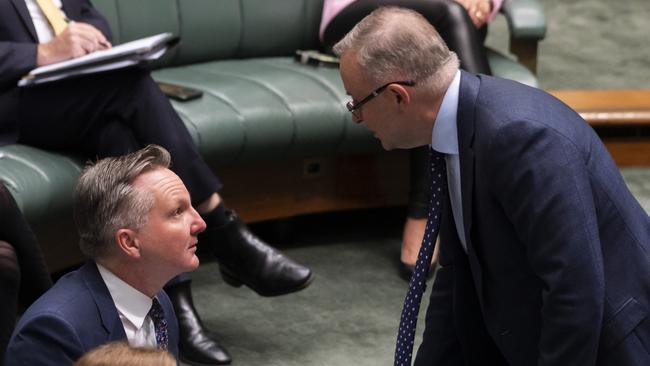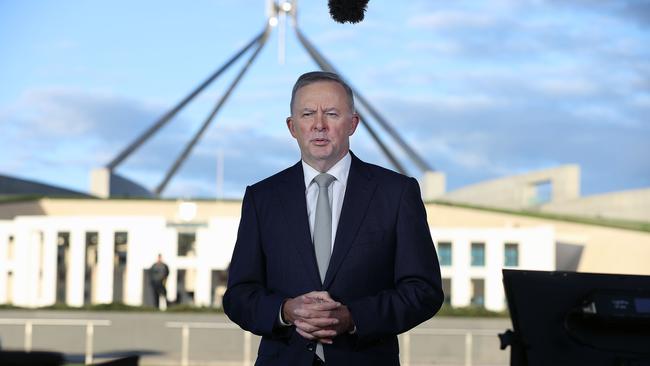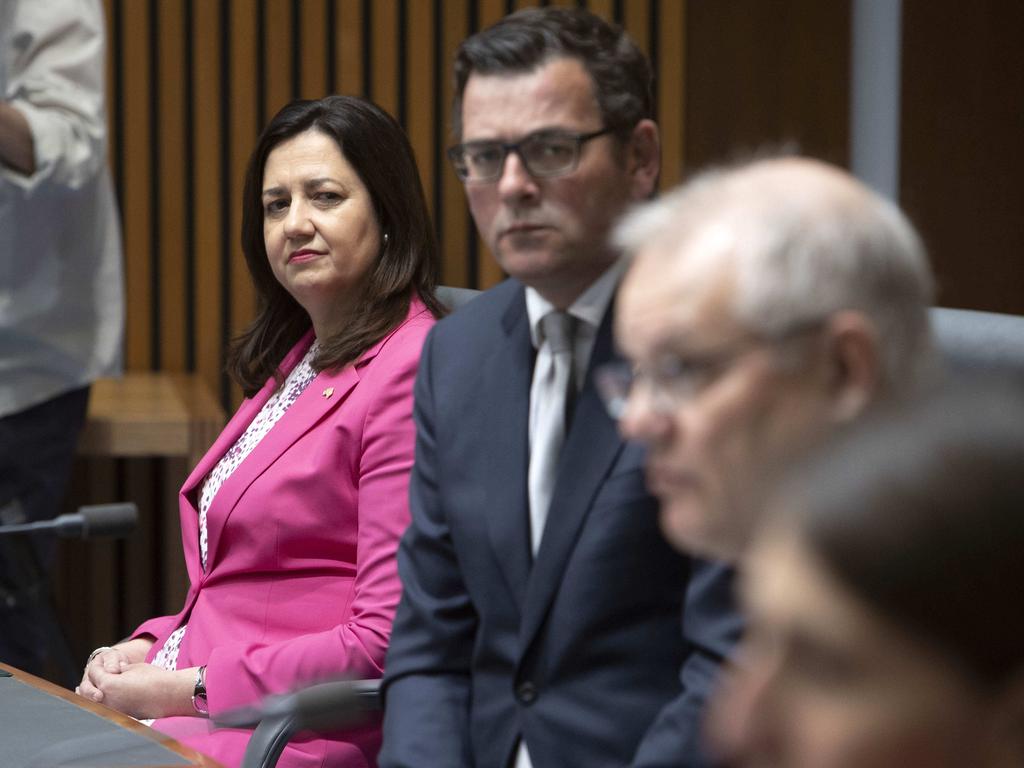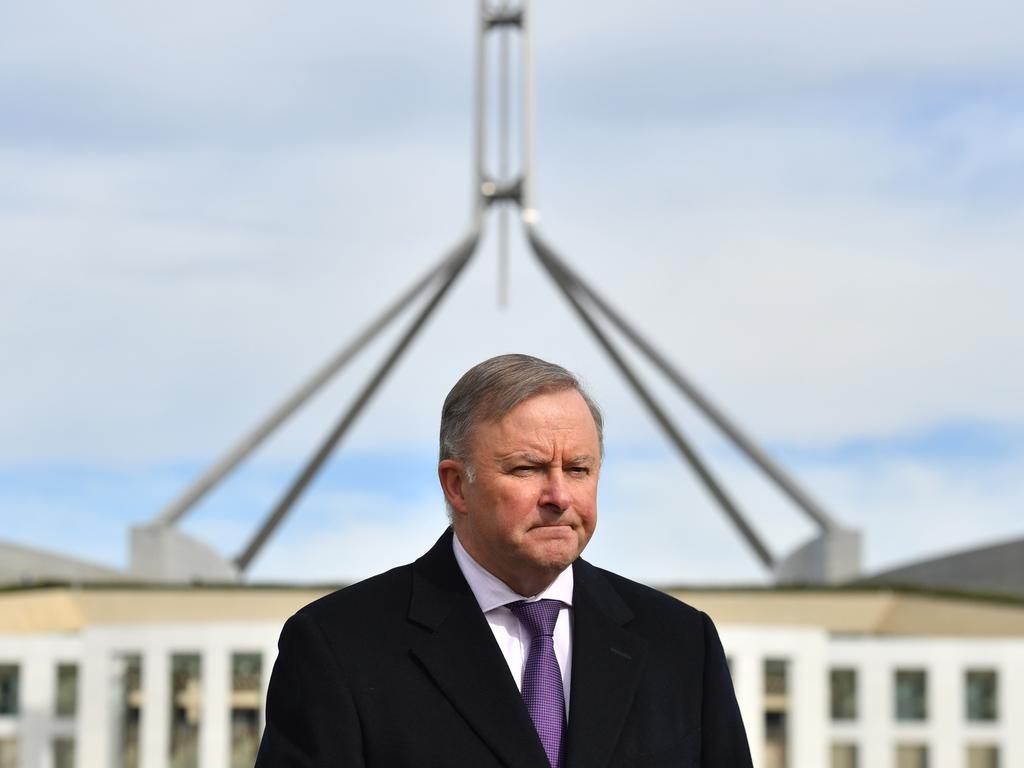PM’s G7 triumph leaves Labor lost for words on climate
It is the ALP, not Scott Morrison, now looking isolated in its net-zero emissions narrative.

After the G7 summit all the same critics – predictably – accused the Prime Minister of being isolated on climate change, “just not getting it”, being an embarrassment, being snubbed and not moving with other world leaders to stop investment in coal to achieve net-zero greenhouse gas emissions by 2050.
But the reality is that Australia’s unique position as a coal supplier, global leadership in renewable energy, a less prescriptive attitude from the G7, a recognition that tangible results are more important than signing undertakings that are not met, the need for even more energy and the emphasis on technological answers, mean Morrison was a winner on climate change at the UK summit.
It is Labor that is running an outdated narrative on climate change, isolated from reality and paralysed on meaningful climate change and energy policies by its own divisions and conflicting goals.
Morrison has been understated on climate change at the G7 because he has his own internal divisions, not the least having to protect the fragile Nationals leadership of Michael McCormack but, politically, for the first time in more than a decade, the Coalition is in a better climate change position than Labor going into an election.
After the G7 summit ended, Anthony Albanese declared that on climate change and coal: “Australia is increasingly falling behind. Here we have all the world’s major powers, the G7, all committing to net-zero emissions by 2050 and Australia being isolated in our opposition to that.”
“Scott Morrison keeps Australia back and is increasingly isolated,” the Opposition Leader said after the G7 communique was released.
When asked about the communique’s reference to not financing “unabated” coal-fired power generation Albanese said it was contrary to Morrison’s commitment to a feasibility study for a new coal-fired power plant in Collinsville in Queensland.
“I’ve said very clearly there won’t be a new coal-fired power station built in Australia. That’s consistent with what the leaders at the G7 are saying,” he said as part of the argument that Morrison was isolated and embarrassed on the world stage.
Yet, for the next three days in parliament, Albanese, Chris Bowen as Labor’s climate change spokesman or no other Labor MP asked a question about climate change, coal-fired power stations, existing or proposed, coal exports or carbon emission abatement measures for coal or gas electricity generation.
This lack of inquiry or prosecution to the argument was despite Bowen moving a debate on renewable energy during which he brandished a solar panel in a parody of Morrison’s display of a lump of coal when he was treasurer.
The reasons for this are simple.
The predictions for the dominance of climate change at the G7 summit were wrong, Australia was not isolated, Morrison’s mantra of “technology not taxes” as a means of reaching net-zero emissions by 2050 was sympathetically received, a swath of future low-emissions deals were signed, Boris Johnson, as G7 host, recognised Australia’s position and the communique, at Japan’s insistence, ensured the future of coal-fired power where carbon emissions are abated.
Albanese either wilfully or disingenuously chose to ignore the vital qualification in the communique, which said global investment “in unabated coal power generation” was incompatible with greenhouse gas emission reduction targets.

All new coal-fired power plants take measures to abate carbon emissions with carbon capture and storage and a range of other technologies. The inclusion of “unabated” guaranteed the future of coal-fired power, particularly in developing nations where coal will continue to be the affordable reliable energy source for decades to come.
So, despite there being not just a negative outcome for Australia but a positive result from the British invitation to attend the G7, Labor, Greens (who had the courage to ask a question in parliament) and activists’ narrative did not change.
Labor maintained Morrison was isolated, the G7 had outlawed coal-fired power and Australia’s refusal to sign up to net-zero emissions by 2050 meant we would “have a carbon tax imposed on us” through European carbon tariffs.
The premise for all of this is either false or highly unlikely, and the real reason Labor is keeping to this patently superficial analysis is because it is Labor that is using an outdated narrative on climate change, which ignores Australia’s comparative global success on carbon emission reductions and renewable energy and doesn’t confront the reality of the need for reliable energy towards 2050.
Far from concentrating on climate change, the G7 communique had only five out of 70 agreed points on climate change while the majority were about Covid-19, the economic recovery from the pandemic, free trade, China and human rights.
Within the climate change agreements, apart from the guaranteed coal power, there was an explicit recognition that signing agreements was inferior to “tangible results” on emissions reductions and that there was an urgent need to “accelerate” those efforts.
There was also a huge commitment to technological solutions.
Morrison said the meeting had concentrated on the “challenge of achieving net-zero emissions (which) requires the technological solutions which work effectively in an advanced economy like Australia’s or Japan or Germany as it does in an economy like India or South Africa”.
Boris Johnson, as the UK host for the summit, demonstrated a less prescriptive approach, wasn’t demanding Australia formally sign an agreement on 2050 targets and went out of his way to recognise Australia’s position as a coal supplier.
Morrison had also used the forum to again highlight Australia’s achievements in emission reductions compared to his G7 hosts. Australia is three to five times better placed to achieve its 2030 reduction targets than all the G7 members.
The British Prime Minister praised Australia’s efforts, particularly with “clean tech”, and looked forward to our participation at the next climate change summits in New York and Glasgow.
No doubt there will be the same predictions of Australia’s isolation and embarrassment before these meetings, which Morrison is likely to attend, but there needs to be an honest, realistic assessment of the outcome of the G7 summit before superficial predictions are made again.








Before Scott Morrison was invited to attend this week’s G7 summit in Cornwall, Labor, the Greens, Coalition critics and anti-coal activists predicted Australia would be isolated, snubbed by Joe Biden and Boris Johnson and, once again, be treated as a pariah on a world stage dominated by climate change.